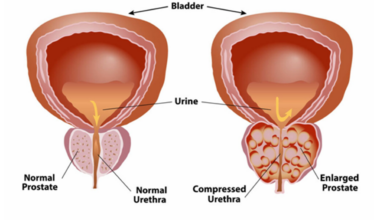As the arms race for peak mental performance continues, many people seek alternatives to nicotine for boosting focus and productivity. While nicotine has been a go-to for some, its health implications drive a quest for healthier, sustainable options. This exploration ventures beyond common advice, exploring novel strategies that enhance concentration without resorting to nicotine.
The Power of Natural Stimulants
Nature offers a plethora of substances that can sharpen focus. Unlike nicotine, these natural stimulants—such as green tea, which contains L-theanine, or the moderate use of coffee—promote concentration without significant adverse effects. L-theanine, in particular, is known for its ability to increase alertness while promoting calmness, making it an intriguing area for further exploration.
For individuals exploring nicotine-free methods to enhance focus and mental clarity, considering alternatives can be invaluable. Brands like Vaporesso offer a wide array of non-nicotine products designed to cater to various preferences and needs, aiming to provide options for those interested in reducing their nicotine intake and seeking a different kind of stimulation.
Understanding Focus
At its core, focus is the brain’s ability to concentrate its attention on a target subject or task, excluding unrelated information. This mental process is crucial for productivity, learning, and the completion of complex tasks. Enhancing focus involves both biological mechanisms and environmental adjustments, paving the way for innovative focus-boosting methods.
Optimizing the Work Environment
The spaces where we work profoundly affect our ability to focus. Simple alterations, like enhancing natural lighting, minimizing noise pollution with noise-canceling headphones or white noise machines, and organizing a clutter-free work area, can have a substantial impact. These environmental tweaks cater to the brain’s preference for well-organized, distraction-free areas, optimizing focus.
Biohacking for Focus
The biohacking community brings fascinating insights into non-traditional methods for improving focus. Techniques such as controlled breathing, exposure to cold temperatures, and the use of certain lighting can influence the mind’s ability to concentrate. While these methods may seem unconventional, they highlight the body’s potential to adapt and enhance focus through varying stimuli.
Mindfulness and Meditation
Mindfulness and meditation practices have gained attention for their ability to improve focus and cognitive function. Regular practice can lead to changes in the brain associated with better attention and focus. Interestingly, these practices not only increase concentration but also enhance overall mental health, providing a dual benefit.
Aromatherapy
Aromatherapy has been recognized for its potential to improve concentration and mental acuity. Essential oils such as rosemary, peppermint, and citrus are known to stimulate the mind and enhance focus. Incorporating aromatherapy into daily routines, either through diffusers or personal care products, offers a simple and enjoyable way to boost mental performance.
Exercise and Nutrition
Physical exercise and a well-balanced diet play pivotal roles in the ability to focus. Exercise, particularly aerobic activities, can boost brain function, including attention and memory. Similarly, a diet rich in omega-3 fatty acids, antioxidants, and vitamins has been linked to improvements in cognitive functions, laying a nutritional foundation for better focus.
Hydration and Focus
Maintaining adequate hydration is essential for optimal brain function and focus. Even mild dehydration can impair cognitive performance, affecting concentration, memory, and mood. Ensuring regular intake of water throughout the day supports brain health and improves the ability to focus on tasks at hand.
Cognitive Training Apps
Technological advancements have introduced cognitive training applications that are designed to improve mental functions, including focus. These apps feature games and tasks that challenge the brain, aiming to enhance cognitive flexibility, memory, and attention. Regular use of these tools can lead to significant improvements in concentration and overall brain health.
Conclusion
In the quest to boost focus without relying on nicotine, it’s clear that a combination of natural stimulants, environmental adjustments, mindfulness practices, biohacking techniques, and foundational health practices such as exercise and nutrition can play significant roles. By considering these varied approaches, individuals can explore a spectrum of options to enhance their mental sharpness, productivity, and overall well-being without compromising their health. Embracing these strategies can lead to the discovery of what works best for an individual’s unique needs, guiding them toward achieving their peak mental performance in a healthy, sustainable manner.









